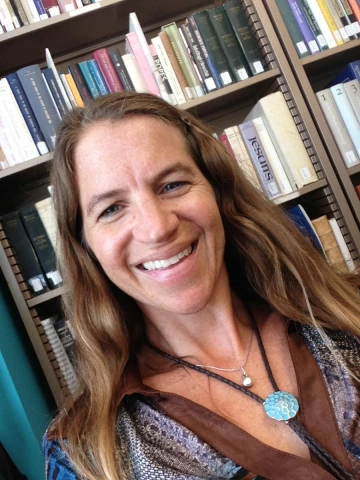New Position and New Project for Crocker (2016)

SOA alum Rebecca Crocker (Ph.D. 2016) is pleased to share that she has just been hired as Cultural Anthropologist with Variant Bio, a start-up biotech firm based in Seattle that aims to develop novel therapies by studying the genes of people with exceptional health-related traits. Rebecca joins a small group of anthropologists who work closely with population geneticists, epidemiologists, project coordinators, and external global partners to implement community engagement to ensure ethical conduct and abide by cultural and social practices in all research activities in diverse communities spread across the globe. In addition, she will engage with local stakeholders at each of these sites to establish post-research benefit sharing programs aimed to support local priorities and needs.
In addition, Dr. Crocker is co-PI (together with PI Daniel Martínez from Sociology and co-PI David Garcia from the College of Public Health) on a project that was just awarded funding from the Hispanic Serving Institution (HSI) Faculty Seed Grant! The “Salud Sin Fronteras” project uses a novel survey instrument built of Rebecca's 2016 dissertation fieldwork to examine the incidence and significance of barriers to health care access both pre- and post-migration among first generation Mexican immigrants in southern Arizona, as well as the prevalence of traditional and lay healing modalities. To date, the study has employed and trained eight undergraduate and graduate students. Below is a project summary:
Background: Hispanic Serving Institutions (HSIs) play a pivotal role in recruiting and graduating Latinx students via the provision of social and academic support, culturally relevant coursework, and an environment of “servingness” that highlights mentoring and training Latinx students and engaging them in culturally relevant research projects. One critical issue that affects Latinx students and their families is blocked access to medical care, which is a social determinant of health that contributes to disparities evidenced in immigrant, ethnic minority, and low-income populations.
Methods: The proposed study “Salud Sin Fronteras” seeks to expand existing research frameworks on healthcare barriers by employing a “life-course” approach that explores existing associations between early life health experiences and medical and lay care seeking practices post-migration. The research team has developed a novel quantitative survey instrument to be administered among 300 Mexican-origin individuals in Southern Arizona.
Outcomes & Significance: Salud Sin Fronteras will train Latinx students in research skills, enhance and support racial and cultural ways of knowing, and help extend the HSI mission across the UA campus. In addition, study outcomes will expand our understanding of the binational implications of blocked medical care access that can inform health interventions designed to promote wellness and care access.

